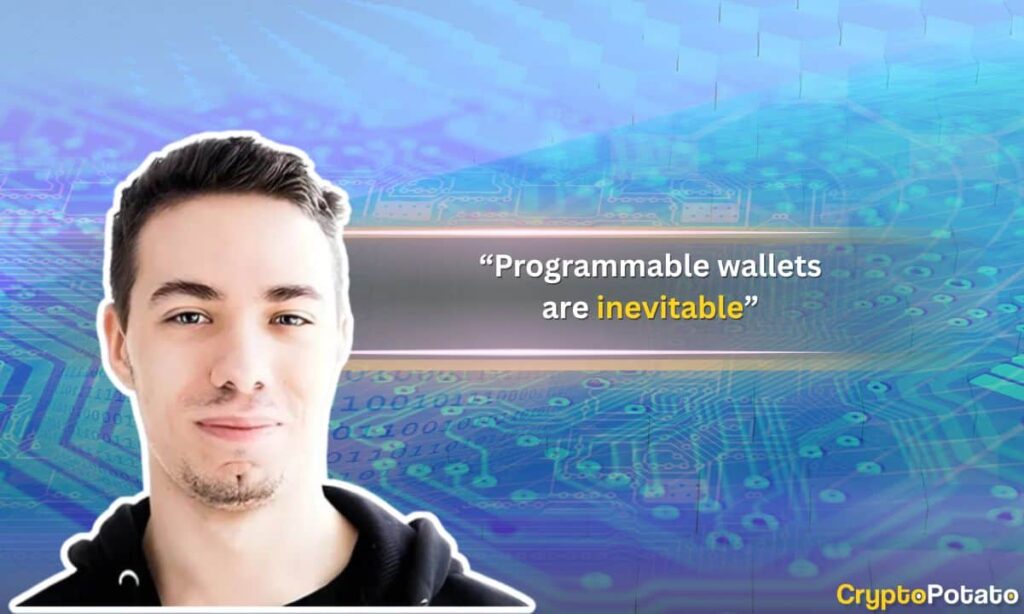Inside the Future of Self-Custody with Ambire (Interview with CEO Ivo Georgiev)

In this interview, Ivo Georgiev, the co-founder and CEO of Ambire, talks about the mission behind Ambire Wallet and how it tackles some of the most pressing and key challenges in self-custody for crypto users.
The conversation provides a fresh perspective on making self-custody accessible to non-technical users through features such as simplified transaction fees, seedless onboard, account recovery, as well as in-app security.
Georgiev highlights Ambire’s early adoption of account abstraction as well as how it’s positioned to integrate seamlessly with Ethereum’s evolving standards, including EIP-7702.
What inspired the creation of Ambire Wallet, and what specific challenges in self-custody user experience were you aiming to solve?
Ambire was born as a spin off of AdEx, which at the time provided an advertising network built on Ethereum – the problem there of trying to onboard non technical people on to web3 via MetaMask, writing down seed phrases, looking for funds to pay gas with – made it clear to us that we needed a better solution for self-custody.
As a result, we built a UX friendly wallet as part of AdEx, which also coincided with the DeFi summer of 2020 which highlighted the problems with self-custody even further.
As such, we set on to solve the messy onboarding and usability problems of existing solution.
Ambire is known for its user-friendly approach—how does the wallet simplify crypto for those without technical backgrounds?
For one, it simplifies paying for transactions – in Ambire you can pretty much get the fee deducted from whatever you have in your wallet, as with any traditional fintech or bank solution.
Furthermore, we aim to heavily simplify onboarding, by eliminating or delaying the need for seed phrases and enabling account recovery – the ability to always regain access to your account even if you’ve lost your device.
Last but not least, security is user-friendliness for us: this means that the user must be informed and protected to the fullest from scams and phishing – we achieve this through in-house transaction simulation.
Ambire has been known for adopting really cool features before they gained mainstream attention. What led you to bet early on account abstraction, and how has that decision shaped the platform’s development?
Account abstraction was actually part of the original Ethereum roadmap as a way to introduce programmable accounts. Programmable accounts are what solves most of the compromises in the self-custody world: ERC20 approvals, secret (seed) phrases, usage of alternative authentication mechanism like Passkeys and more.
As such, we knew that this is the future and the way to go.
This decision worked very well for us, because with EIP-7702, the web3 ecosystem shifted naturally in an account abstraction direction, as originally intended,
One of Ambire’s standout features is gas abstraction. Can you explain how it works and why letting users pay transaction fees in stablecoins is important?
What takes a while to understand about gas abstraction is that it’s actually great for two reasons: 1) onboarding, 2) privacy.
Onboarding without gas abstraction is a pain, because imagine that you’re trying out a new layer 2 and it needs it’s own native token for gas (as all L2s do). Now you’re stuck and you can’t transact on it until you find a way to bridge to it or fund it from a centralized exchange.
In Ambire, you can pay gas in many tokens but more importantly you can pay gas cross-chain, allowing you to get started with any new L2 without the hassle.
Same goes for new accounts: imagine you only have some stables that your friend sent you. Without this feature, this account is effectively frozen until you fund it with ETH. With it, you can pay directly with the stablecoin, as with any traditional fintech app.As for privacy, it’s a by-product: by not having to fund your account from a centralized exchange or via a friend, you reduce the traceable information you leave behind you on-chain.
How do you see this EIP 7702 impacting wallets like Ambire that already use account abstraction?
It mostly plays into our hands, because we were the only extension wallet focused on supporting EOAs and Smart Accounts in one place. As such, we already had all the infrastructure needed to support EIP-7702 in place and battle-tested, and it helped us to further smoothen the learning curve by removing the need for distinct account types.
What are some of the biggest misconceptions you encounter about smart contract wallets, and how does Ambire address them?
Our philosophy is that things should just work and users shouldn’t think about the distinction between “smart contract” or “EOA” wallets. This is the most effective way to battle misconceptions: introduce the best of the account abstraction world, without any of the limitations. This is something that EIP-7702 helps us achieve.Historically, some misconceptions have been:
Smart accounts cannot sign messages
Smart accounts are incompatible with many apps
Smart accounts and EIP-7702 accounts are not cold storage
We’ve busted all those myths by simply providing those functionalities, live, on mainnet and L2s.
Looking ahead, how is Ambire preparing for the evolving wallet standards and user expectations in the Ethereum ecosystem?
Excellent question! One of the most exciting advancements we’re working on is cross-chain balance consolidation, or interoperability. This is the solution to the fragmentation that we currently have: for example, you could have 10 USDT on Base and 100 USDT on mainnet Ethereum, but this means you cannot spend more than 100 USDT at a time, and you can only spend the specific balance on the specific network.
This is far from ideal and it’s introducing an enormous blocker in onboarding users to self-custody and getting them off centralized exchanges. In centralized exchanges, users don’t need to care about this.
Now, thanks to intents, bridges, account abstraction and more cutting-edge tech and research, those problems are becoming solvable, and this is one of the things we’ve set our aim to next.
Disclaimer: The content shared in this interview is for informational purposes only and does not constitute financial advice, investment recommendation, or endorsement of any project, protocol, or asset. The cryptocurrency space involves risk and volatility. Readers are encouraged to conduct their own research and consult with qualified professionals before making any financial decisions. This interview was conducted in cooperation with Ambire Wallet, who generously shared their time and insights. The content has been reviewed and approved for publication in mutual understanding. Minor edits have been made for clarity and readability, while preserving the substance and tone of the original conversation.
Binance Free $600 (CryptoPotato Exclusive): Use this link to register a new account and receive $600 exclusive welcome offer on Binance (full details).
LIMITED OFFER for CryptoPotato readers at Bybit: Use this link to register and open a $500 FREE position on any coin!
















